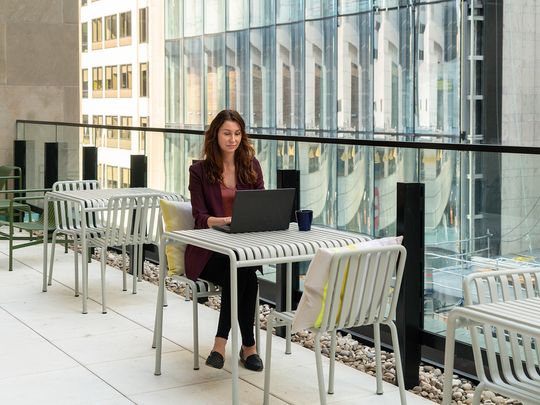
Dubai: Need a temporary office space with all the basic requirements already taken care of? If that’s what your business wants, head to a nearby mall (soon).
New co-working options are starting to show up in the UAE, even if that means creating such spaces in relatively untested locations. Recently, Majid Al Futtaim group tied up with IWG to insert such spaces at some of their signature malls in Dubai.
Other landlords with extensive commercial space footprints are believed to be thinking along these lines. The same could be at existing or new residential buildings too. Which then sets up IWG – and co-working specialists of its kind – for a chance to renew their growth prospects in the UAE and Gulf markets.
“Certain real estate projects very much match our philosophy of trying to get the office space to be as close to where people live and play,” said Marc Descrozaille, Regional CEO of IWG, which is headquartered in Switzerland. (IWG has multiple brands such as Signature, Regus and HQ.)
“This is the concept of the ‘15 minute city’ and that’s where we want to be.
“We have various office places in a mixed-use environment, whether there is a hotel, residential or a mall.”
Creating less commute
Dubai’s new urban plans stress on creating living and working spaces that can reduce the commute times. It will be the same blueprint other city administrators will work towards, and create infrastructure and transportation to make it happen.
Also, the hybrid work culture of the Covid period – starting with work-from-home and then split it between home and office – has more or less wound down. With that, demand for co-working options immediately shot up, helped along by more businesses being launched in the UAE. (It also helped that new standalone office buildings have been limited. The biggest successes of the recent past have been the Uptown Dubai tower and before that, ICD Brookfield.)

We have a lot of discussions with various free zones, and it's interesting because some of them are just starting...
“Suddenly, we had landlords of residential buildings calling in because they wanted office spaces added,” said Descrozaille. “They understand there is a new value proposition because of the high demand for offices, and which can be very beneficial for them and their properties.”
Regional HQs, satellite offices
Another factor that could speed up creation of more co-working options is MNCs developing their ‘hub-and-spoke- model in the Middle East markets. There would be the regional HQ and then direct operations in multiple other markets.
“Because they don't want to go through the hassle of finding a space, having to arrange it, get the licenses and registration, they would come to what we offer,” said the IWG regional chief. “Or it could be startup clients, who by the third year of operations have grown into 20 plus work teams. “We can support that because we provide solutions which are extremely flexible. It's easy for us create more space as they are growing their business.”
IWG signed up 68 new locations for its Middle East network in 2023, and targets 500 further ones in the next 5 years.
UAE, Saudi Arabia and Egypt will be the main focus. "In all of these markets we are anticipating to double in size in the in the next two or three years," said Descrozaille. "It took us 25 years to have 12 office centers in Egypt - it's going to take us one year to to move to 24. There is a real appetite for this type of office solution in the region, and we are really benefiting from it."











